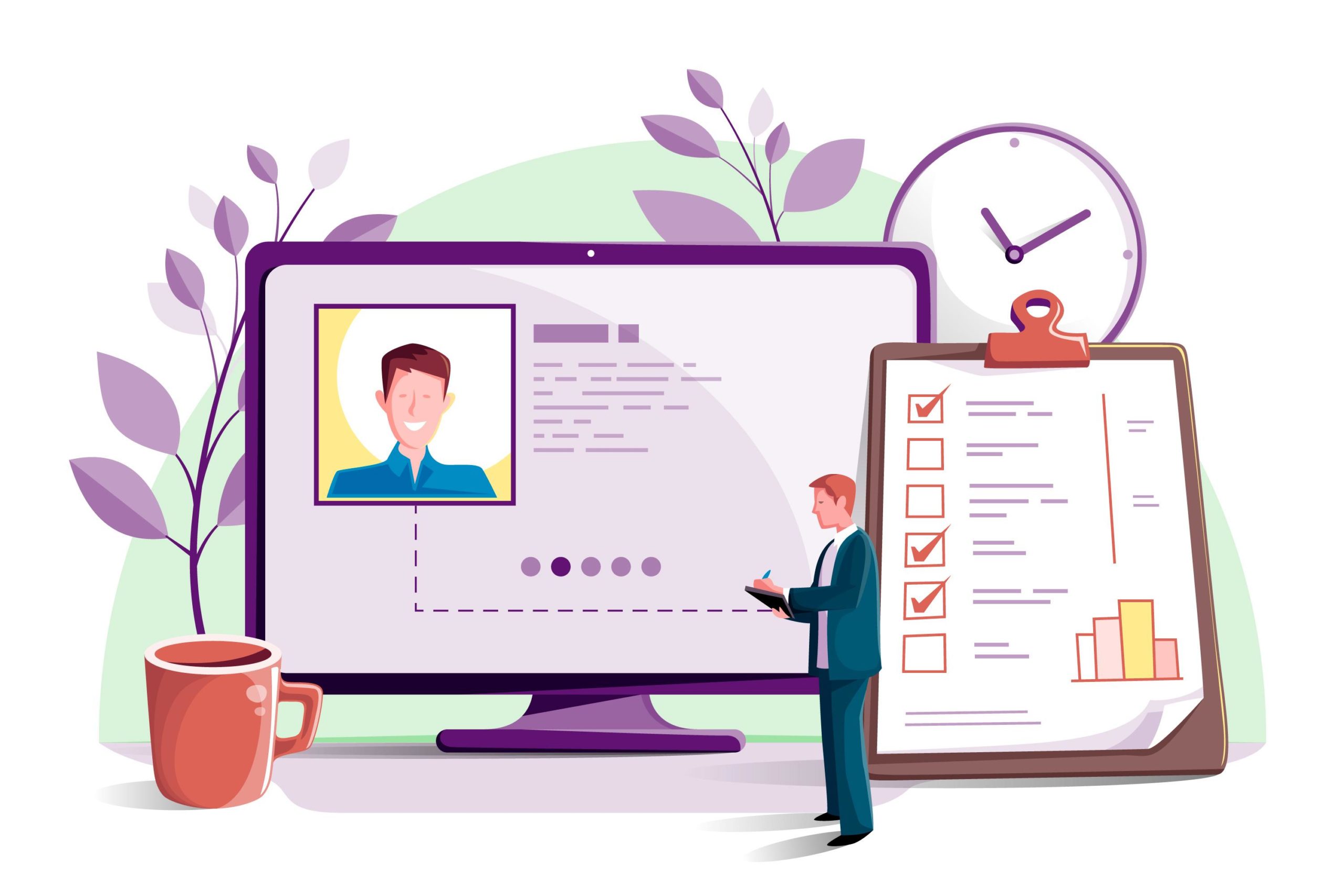You have a consulting interview coming up, and the calendar is not exactly generous.
Two weeks may feel short, but it’s enough to sharpen your thinking and build a clear plan if you use each day well.
Treat these next two weeks as your runway to show what you’re truly capable of.
In this guide, I walk you through an interview preparation that works. Here is what to expect:
- Know what to work on each day so your time has direction
- Build habits interviewers notice, like clear structure and calm reasoning
- Walk into the interview feeling prepared and steady
Let’s get started.
Start With the Right Mindset for Your Interview Prep
Before you open a single case book, step back for a moment.
These two weeks are not about stuffing your head with every framework you can find.
They are about training yourself to think, speak, and solve problems the way top consultants do.
Having coached many candidates, I’ve seen that those who stand out are not necessarily the ones who know the most, but rather the ones who remain composed and structured when things take an unexpected turn.
That is the mindset you want to build from day one.
Here is what to keep in mind as you start:
- You are not expected to know everything. Interviewers are looking at how you break down unfamiliar problems, not how many cases you have memorized.
- Clarity matters more than speed. A well‑structured answer shows you are in control, even if it takes a few extra seconds.
- Your presence is part of the assessment. Confidence, calmness, and curiosity convey that you can handle high-pressure situations without losing your edge.
When you approach your prep with this mindset, every practice session becomes meaningful.
Next, let’s map out what to do and when so you always know your next step.
Map Out Your 2‑Week Consulting Interview Prep

Concentrated male manager attentively viewing document while working in modern office. Serious Indian financial advisor analyzing information. Real estate agent concept[/caption]
To be honest, two weeks is a tight window, so I want you to make every day count.
Here’s a schedule I recommend you follow:
| Day | Focus Area | What to Do |
| 1–2 | Learn the firm and role | Research services, projects, and culture. Note what they value in consultants. |
| 3–4 | Understand case interviews | Watch sample cases, review common structures, and outline approaches. |
| 5–6 | First practice cases | Run simple timed cases. Focus on staying calm and talking through your reasoning. |
| 7–8 | Math and structure drills | Practice quick calculations and breaking problems into clear steps. |
| 9–10 | Mixed practice | Combine fit questions with case work to build flexibility. |
| 11–12 | Full simulations | Run timed cases with a peer or coach and note areas to improve. |
| 13 | Targeted review | Revisit weak spots, refine stories, and redo tricky cases. |
| 14 | Final check and reset | Do one light case, review notes, and rest your mind. |
Now, let’s break down each part of that schedule so you know exactly how to approach it.
1. Lock in the Basics of the Firm and Role
The first two days are where you build your foundation. Dig in and understand who you’re stepping into the room with.
Here’s how to approach it:
- Review their recent projects. Are they focused on market entry, operational turnarounds, or digital strategy?
- Pay attention to the words they use. Those words are signals of what they value in their consultants.
- Study the role itself. What does a business analyst or associate actually do in this firm? How does that line up with your own strengths and experiences?
When you do this, every answer you give later lands differently.
Instead of saying, “I like your firm because it’s prestigious,”
You can say, “I’ve seen how you approach X kind of problem and how your teams emphasize Y way of thinking. That’s exactly how I’ve approached projects in the past.”
Inside Module 1 at High Bridge, we break this down in detail because many candidates tend to skip it.
They jump straight to cases and miss the context that makes their fit answers stand out. Don’t make that mistake. Start here.
2. Learn How Case Interviews Really Work
Before you even touch a practice case, you need to understand the rhythm of these interviews.
Too many people jump straight in and wonder why they feel scattered.
I want you to watch how a strong candidate handles the first minute of a case.
They pause. They restate the problem in their own words. They lay out an approach before they solve it.
That moment sets the tone for the entire discussion.
Spend a session or two just observing. Watch recorded mock cases, pay attention to how they transition from one part of the case to the next, and how they summarize before moving on.
Then, ask yourself: What does the interviewer praise? What moments make the candidate sound composed and structured?
Once you see that pattern, your own practice will stop feeling like guesswork.
You’ll know what “good” actually looks like, and you’ll start modeling it.
3. Schedule Daily Practice Blocks You Can Stick To
You don’t build this skill by cramming on random days.
You build it by showing up every day with focused, protected time. Set hours that truly work for you and treat them as non‑negotiable.
Here’s how to make those blocks work:
- Pick specific hours and commit. Morning, evening, or split sessions. It doesn’t matter as long as you can actually stick to them. Put them in your calendar like real meetings.
- Protect those hours. Silence notifications, close other tabs, let people around you know you’re not available. This isn’t background studying; this is deliberate practice.
- Work with intention. In each block, know exactly what you’re tackling. Are you running a case? Drilling mental math? Rehearsing a fit story? Go in with a focus and track how you did.
- End with a quick review. Before you wrap up, jot down what worked and what felt shaky. That gives you direction for your next session.
I have coached students to treat these blocks like training reps.
When you show up consistently with a clear plan, confidence follows. And it shows on interview day. You can start building that rhythm right now.
After each session, note where you slipped.
Maybe your structure broke down or your math wobbled, and make that the focus next time.
This simple loop of observe, adjust, and improve is what drives fast progress.
Strengthen Your Case Practice (Your Secret Weapon)
This is where you start pulling ahead.
Case interviews aren’t about consulting frameworks and hoping one fits.
Every case you practice is a skill rep, not a test. Each one sharpens how you structure your thoughts and explains them clearly.
Research also shows that people who review what worked and what didn’t improve much faster than those who just grind through cases.
So, here’s how I suggest you handle your cases:
- Slow down at the start. Restate the problem in your own words and outline the steps you will take before solving it. That small pause already shows control.
- Talk through your math. Don’t solve silently. Even if you mess up a number, clear reasoning shows you know how to think.
- Get comfortable with data. When you see a chart or table, walk me through what you notice and tie it back to the case.
- Review right after. Don’t just move on. Ask yourself where you lost clarity or flow, write it down, and fix that in your next session.
Let’s make this easier. Focus on these core case types first, they show up again and again and will give you the patterns you need:
- Profitability: Why is profit dropping or not growing? Break it into revenue (price, volume, mix) and cost (fixed, variable, inefficiencies).
- Market Entry: What are the risks and opportunities of entering a new market or launching a product?
- Mergers & Acquisitions: Does it make sense to buy, sell, or merge? Consider strategic, operational, and financial perspectives.
- Revenue Drop: Why is revenue flat or falling? Look at demand, competition, pricing, and mix.
- Operations: How can you make a process faster, cheaper, or more efficient without hurting quality?
- Public Sector: How would you solve problems for agencies or nonprofits with goals beyond profit?
- Qualitative Cases: How do you handle questions with no numbers, like brainstorming growth or brand positioning?
- Other Variants: Be ready for growth strategy, product launches, competitive response, and market sizing.
I’ve watched candidates inside High Bridge turn things around just by practicing this way.
They stop stressing about finding the “perfect” answer and start building habits that actually work in any case.
And honestly, that’s what interviewers are looking for. Someone who can stay calm, think clearly, and bring them along for the ride.
So next time you practice, don’t aim to just finish a case.
Use it to train on how you want to present yourself on interview day.
That’s your secret weapon.
3 Ways to Master Your Fit Stories (and Sound Natural)
Personal fit questions are where they start to assess who you are.
So, pick stories that matter, shape them well, and practice until they come out naturally.
Here’s how to do it:
1. Choose Stories Showing How You Lead and Think
Don’t just mention your job title or list achievements without context.
Instead, focus on times when you faced a real problem that needed solving. Perhaps you had to work with others who disagreed, or you had to make a quick decision with limited information.
These moments show how you handle pressure and think through challenges.
Interviewers want to hear how you respond when things get tough, not just what your role was or what you did in name.
McKinsey even reports that teams who resolve conflicts effectively can improve project performance by up to 30%.
That’s the kind of story that sticks and makes a difference.
2. Give Each Story a Clear Structure
A strong story makes it easy for the interviewer to follow what happened and why it mattered.
You want to guide them through your experience step by step so they see exactly how you handled the situation.
- Set the scene quickly: What was going on? Why was it important?
- Explain your role clearly: What did you need to do? What was at risk?
- Focus on your actions: What steps did you take? What choices did you make?
- Highlight the impact: What changed because of your actions? Use numbers if you can, or explain the outcome in simple terms.
When you organize your story like this, it doesn’t get confusing or overwhelming.
You help the interviewer see how you think and lead, showing them why you’re the right fit.
3. Practice Saying Your Stories Out Loud
Say your stories out loud. Writing isn’t enough.
You need to hear how you sound and get real feedback. Here’s how to practice smarter:
| What to Do | Why It Matters |
| Say stories out loud | Spot awkward or stiff phrasing |
| Record yourself | Hear pacing and tone issues |
| Practice with others | Get honest feedback |
| Repeat until natural | Build smooth, confident delivery |
Going through this loop helps your stories sound real, not rehearsed.
When you share like that, interviewers actually listen, and that’s how you make an impact.
Simulate the Real Interview Before You Walk In

Practice cases under real interview conditions as much as you can. This means:
- Timing yourself. Use a timer to build comfort with pacing and pressure.
- Finding a partner to role-play. Mock interviews with someone else help mimic the real vibe and get immediate feedback.
- Recording yourself. Watching or listening back helps identify habits and areas for improvement.
The goal is to train your brain to think clearly when the clock is ticking and questions come fast.
Try to replicate the actual interview as closely as possible:
- Use a quiet space with no distractions.
- Dress the part if it helps you get in the zone.
- Treat the session seriously, as if it’s the real thing.
If possible, obtain feedback from peers or coaches who are familiar with what interviewers expect. Their insights reveal blind spots that you might miss on your own.
Simulations also sharpen your presence.
It shows you carry yourself, your tone, and your confidence. These soft skills often tip the scales when cases are close.
The more you practice like this, the less intimidating the real interview feels, and that confidence will show the moment you start.
Final Prep on the Day Before the Interview
Make sure to review your best-fit stories, just enough to keep them fresh. Skip anything new.
If you’d like, consider doing a light case or two, but keep it easy and relaxed.
Rest well. A good night’s sleep helps your brain function more effectively.
Stay hydrated, eat light, and avoid anything that’ll drain your energy.
Here’s a quick checklist for the day before your interview:
| What to Do | Why It Matters | Tips |
| Review fit stories | Keeps them fresh, no pressure | Limit to 1–2 reviews |
| Do light cases | Keeps skills sharp, no stress | Pick easy cases |
| Rest and hydrate | Boosts focus and memory | Avoid caffeine late |
| Avoid heavy meals | Maintains steady energy | Eat light |
| Check your mindset | Builds calm and confidence | Try breathing exercises |
When you follow this approach, you set yourself up to walk into the interview calm, focused, and confident.
The work is done, now it’s time to show up and perform.
Deliver Your Best in Your Consulting Interview
At this point, all the hard work is behind you. You’ve built a plan, sharpened your case skills, practiced your fit stories, and simulated the real interview. Now it’s time to trust yourself and show up fully present.
Remember, the interview is as much about how you think and communicate as it is about what you know. Stay curious, stay composed, and let your preparation carry you through.
If you’re working with a tight timeline, you don’t have to do it alone. Our Module 1, Immersive Case Interview Course at High Bridge Academy provides a clear system to follow. Learn more about the program today!


